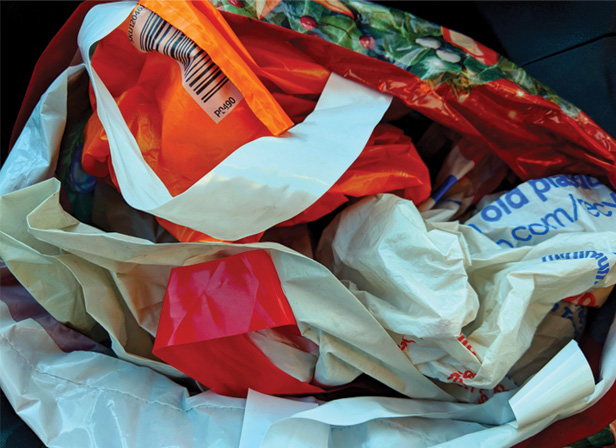Sustainability June 03, 2024
California Lawmakers Pass Bills To Ban Thick-Film ‘Reusable’ Plastic Bags
A decade after the state’s initial bag ban passed, advocates are looking to close a loophole in the law in an effort to reduce plastic waste.
California is getting closer to banning reusable plastic bags at grocery and convenience stores – closing a loophole on the plastic bag ban passed there a decade ago.

Lawmakers in the state recently approved two bills – AB2236 and SB1053 – that would ban thicker plastic bags, as well as the thin, single-use plastic bags that were already banned. If the bills become law, stores would still be able to offer customers paper bags or bags made of at least 50% post-consumer recycled materials at checkout for a 10-cent fee.
The proposed updates to the legislation come after studies found a sharp increase in plastic bag waste in the years following the bag ban. For instance, a report from consumer advocacy group CALPIRG showed that the amount of discarded plastic bags jumped 47% in 2022, compared to the year the bag ban was passed – from 154,385 tons of plastic bag waste to 231,072 pounds.
Andy Keller, founder and CEO of California-based ChicoBag (asi/44811) and a member of the Promo for the Planet editorial advisory board, remembers the initial bag ban passage well. “The plastic bag industry lobbied aggressively for the inclusion of thick-film plastic bags,” he says. “They promised they were reusable and recyclable, yet after 10 years, both of these assurances have proven to be a lie. Thin- or thick-film plastic bags, regardless of if they are marketed as reusable or not, are simply not recycled in any meaningful way.”
The reason for this, he adds, is that the oil industry is heavily subsidized, “making the economics of recycling plastic nonsensical.” Keller adds: “In almost all cases, it is currently cheaper to make virgin plastic than it is to use recycled content plastic.”
In a statement, Assemblymember Rebecca Bauer-Kahan, an author of AB 2236, echoed Keller’s thoughts: “Plastics are the next front in our fight against big oil. By 2050, plastic production will exceed 20% of global oil production. AB 2236 is a critical step to eliminate plastic pollution and eliminates an opportunity for the oil industry to continue destroying our planet.”
State Sen. Catherine Blakespear, who authored SB 1053, said in a statement that California’s original plastic bag ban was counterintuitive, adding: “We need to do better. Shockingly, some 18 billion pounds of plastic waste flows into oceans every year from coastal regions alone. California must do its part to eliminate this scourge that is contaminating our environment.”
The two bills have support from a range of environmental as well as retailer groups, including the Ocean Conservancy and the California Grocers Association.
The American Recyclable Plastic Bag Alliance, which represents manufacturers and recyclers of film plastic retail bags, opposes the bill, claiming in a statement that passage of either bill “would likely trigger increased plastic use, eliminate the use of 183 million pounds of recycled content in California each year, exacerbate our carbon footprint, move jobs out of California, and significantly raise costs for working families.”
The bills, which still need to pass the opposite houses and be signed by the governor before becoming law, would go into effect on Jan. 1, 2026.
California’s initial plastic bag ban sparked a wave of similar legislation across the country over the last decade. More than 10 states have tight restrictions/bans on single-use plastic bags. Colorado, Rhode Island, Connecticut, Delaware, Maine, New Jersey, New York, Oregon, Vermont and Washington all have restrictions. Hawaii doesn’t have a state-level ban, but counties enacted their own restrictions independently, effectively outlawing single-use plastic bags statewide.
Some retailers have also willingly begun cracking down on single-use plastic bags. Grocery chain Kroger is working to rid its stores of single-use plastic bags by 2025, and Walmart has stopped offering them at checkout in six states.
In addition to the environmental benefits of reducing single-use plastic, bans have been touted as an opportunity for promotional products distributors to sell branded, reusable totes.
“High-quality, machine-washable reusable bags can be a joy to own and use and have a significantly lower environmental impact than single-use or quasi-single-use bags,” Keller says.

Promo for the Planet is your destination for the latest news, biggest trends and best ideas to help build a more sustainable and socially-responsible industry.
